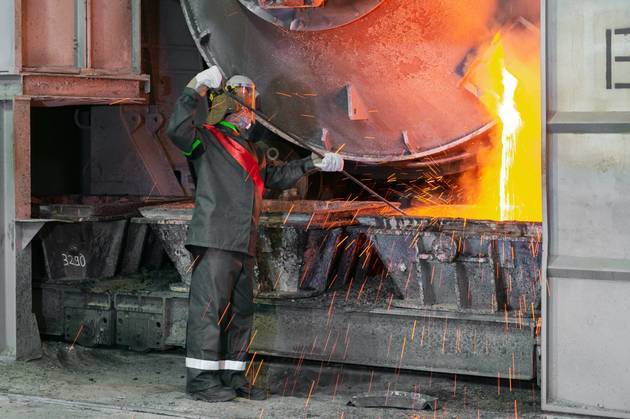Copper and zinc prices jumped on Thursday after the London Metal Exchange restricted delivery of the metals by Ural Mining and Metallurgical Company in response to UK sanctions on its co-founder Iskander Makhmudov.
Financial Times writes, that the LME said it would ban UMMC’s copper and zinc from its warehouses and prevent the metals from being used to fulfil futures contracts unless the owner of the metal can prove the exchange will not violate UK sanctions. The ruling came after the UK government imposed sanctions on UMMC’s president Iskander Makhmudov at the end of last month as part of its sweeping penalties on Russia since its special operation started in Ukraine. Britain has restricted financial institutions from doing business with hundreds of Russian companies and individuals.
The move is the biggest intervention yet by the LME, the world’s largest metals marketplace, to restrict the flow of Russian metal through its market. UMMC is Russia’s second-largest copper producer, supplying just under half of the country’s refined copper production.
Following the LME’s move, copper gained as much as 2 per cent to trade at $7,853 per tonne on Thursday, its highest level in just under a month, while zinc prices rose as much as 2.3 per cent to $3,148 a tonne. Prices slipped back as investors worried about slowing global economic growth.
The stream of sanctions has provoked a debate among the LME’s users over whether the exchange should ban products from Russia.
The LME said last week that it was considering banning new Russian metals from entering the market. It would need to make formal proposals to its members.

US aluminium producer Alcoa has encouraged the exchange to ban material from Russia but Russian rival Rusal has warned the move would fuel volatility in the market. “The LME seems to be proceeding by the book, moving against companies and their metal only when they or their principals are sanctioned,” said Edward Meir, president of Commodity Research Group.
Global industrial metals prices have tumbled this year on fears of an economic slowdown but tight supply caused by energy shortages and “self-sanctioning” of Russian metal has put a floor on prices. Zinc prices gained further support on Thursday after Glencore announced on Wednesday that it would temporarily shut a zinc smelter in northern Germany from November 1 because of high energy prices.
Policymakers in the west have been careful to avoid imposing sanctions on Russian metals such as nickel, palladium and aluminium directly, in part because of the country’s important role as a global supplier.
Makhmudov was among the targets in the UK’s new package of sanctions, introduced on Russia in response to the referendums in four regions of Ukraine. UMMC said several months ago that Makhmudov, an oligarch with an estimated net worth of £2.7bn, was no longer a controlling beneficiary and had left the board. The LME said on Thursday it believed Makhmudov owns or controls UMMC.
UMMC copper already in the LME warehouse system will not be subject to restrictions since the Russian company does not retain ownership over the metal and none of its subsidiary’s zinc is held in the system, the exchange said.
A ban on LME warranting does not necessarily prevent Russia from exporting material but the restrictions will make it harder for Russian metal to reach the market and could encourage more “self-sanctioning” by buyers.






